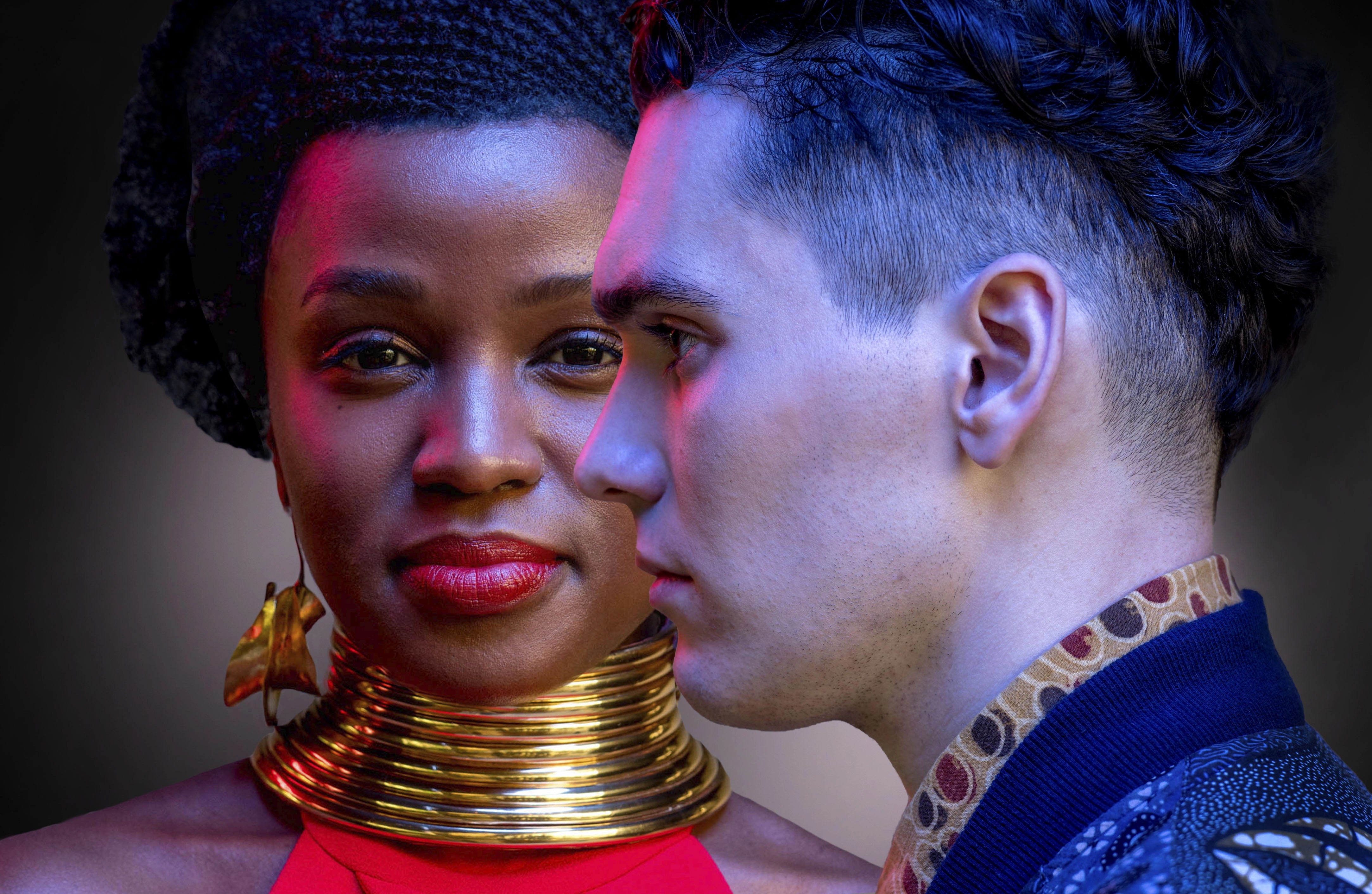- Home |
- Search Results |
- ‘Noughts & Crosses’ director on why the BBC adaptation is needed more now than ever
‘Noughts & Crosses’ director on why the BBC adaptation is needed more now than ever
As the blockbuster TV show based on Malorie Blackman's seminal novel picks up pace, we speak with director Julian Holmes about the challenges they faced and what he hopes the impact of the show will be.

On Thursday, BBC One aired the second episode of its long-awaited Noughts & Crosses series. A highly charged TV adaptation of the groundbreaking YA novel by Malorie Blackman, which skewers the inequalities between black and white Britons by reversing them, the show depicts a nation colonised long ago by imperial Africa.
The book was published in 2001 in the wake of the 1999 court case for the murder of Stephen Lawrence. At its heart lies a Romeo and Juliet-style romance between Sephy (daughter of one of the leading Crosses) and Callum (a lowly Nought, whose mother was Sephy's nanny).
Widely praised for everything from its acting to its costumes and high production values, the series has gotten off to a blistering start. We spoke to one of its directors, Julian Holmes, about why, two decades after the book was first published, Noughts & Crosses feels more timely than ever.
What were the challenges of adapting a book like this?
What changes did you feel were important to make to bring the story to a modern audience?
A key thing was trying to lean into the kinds of unconscious biases that surround the conversation about racism today. Malorie does it so well. There's a powerful scene in the book, which we used, where Callum cuts his finger and Sephy puts a brown plaster that doesn't match his white skin.
We added a few more moments like that, such as when Jasmine Hadley tells her white housekeeper, Meggie, that going on holiday would give her skin some colour, or when Lekan speaks to Callum and mispronounces his name. But we still tried to stay as faithful to the source material as we could.
Callum and Sephy are 14 years old in the book, but you made them older. Why?
We felt that, for dramatic effect, our heroes needed to make more adult choices in their development. The danger with the story for us, on television, is that it could have been misinterpreted as more like puppy first-love. It had to resonate that Callum and Sephy's choices are about a world into which they're entering as adults. And the stakes around those choices needed to feel more meaningful. It just felt sensible to push it in that direction.
Nobody who watched the first episode will forget that powerful police brutality scene. Why did you add that?
We had a lot of conversations about whether to add that scene at the beginning or later on. But we decided it had to be shocking. We had to throw the audience straight into the heart of an authentic experience that didn't have to be explained, a sort of inverted Black Lives Matter moment to thrust viewers into the reality of this world.
Malorie Blackman recently said that racism now is as bad as she's ever seen it. Why do you think it was important to make this series in 2020?
I think the landscape is changing politically and I find it frightening. I think we're going back to a place that reminds me of being a young lad growing up in a very white English market town in early-1980s Suffolk, when it was completely okay to shout 'P*ki' at somebody. I worry that we're living in a world where we're pulling up drawbridges again. And I think that's why the show is timely.
But let's not forget, while there's a lot of anger in the show, it is all built around a story of love – a love that transcends boundaries and conquers adversity. In that world, neither Callum nor Sephy see colour or class. It's a classic Romeo and Juliet story.
What was it like working with Malorie?
She wasn't working on the show by the time I came on board, but she sent me the loveliest email after the second week of filming. Hang on, I have it here: 'Wow! When Callum and Sephy were in that seedy motel together, it was so lovely but so tense. And the scene where Lekan invites Callum out for a drink and says don’t contradict me, cadet. The look Callum gives him at that moment. So cold. So perfect! And when Dorn is stifling Daniel…. I’ll stop now or I’ll list every word and action.' It was so enabling to hear that from her and it gave us a huge amount of confidence in where we were taking her story.
The last few years has seen a rise in far-right nationalism. Do you want those people to watch the show, or is it wasted on them?
Probably wasted. It's certainly pissing them off. There are a lot of haters out there. I try not to look at the comments but there have already been quite a few on YouTube since the trailer landed. Some even calling out the BBC.
I don't know how much it'll make the far right change their minds at all. I don't believe it will. But that doesn't matter. What matters is that people see a conversation and start to realise the way they've looked at things can change. I don't think we've got any hope of changing the sensibilities on the far right. I think, actually, it probably just reinforces what they already feel about things. It's about drowning them out by providing a platform for a sensible conversation about racism and equality.